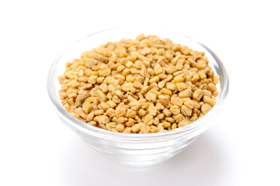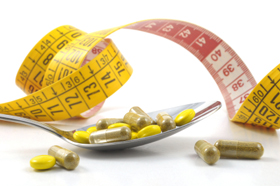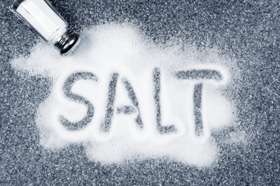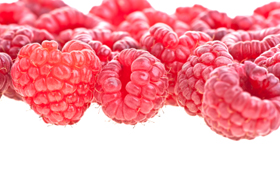Zinc Reinforces Your Defenses Against the Common Cold
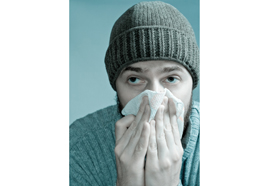
A study published by The Cochrane Collaboration revealed that taking zinc supplements can reduce the severity of cold symptoms and shorten the length of the illness.
Your Body’s Natural Defense
The body is naturally built with its defense mechanism against infection and diseases. From the day that we were born, the immune system is already a little familiar with the things that can harm the body. After the detection of such threats, the immune cells immediately act to destroy and remove the threat from the body. This process of familiarization with the different disease-causing bacteria, virus and other antigens will take time. In the case of the common cold, for example, you would oftentimes need to get sick first before the immune system can effectively fight the virus causing the illness. But there are hundreds of cold strains and new strains evolve from old strains every time that it is impossible to come up with a universal vaccine that would repeal all cold viruses. The best approach is to keep the immune system in pristine condition in order to reduce the severity and length of the symptoms if the illness cannot entirely be avoided.
How Common is Common Cold?
The common cold is considered as a seasonal epidemic that can be transmitted through direct contact with droplets from an infected person, objects and surfaces. People are advised to avoid contact with people and surfaces that could possibly be infected with the common cold virus, especially during an outbreak. Keeping the body healthy, on the other hand, will serve as your first line of defense. Proper diet and sufficient exercise will help strengthen the immune system and help it better fight infection. Certain nutrients from food can also help boost the immune system. A study from The Cochrane Collaboration observed that the supplementation of zinc can reduce the severity and length of the common cold symptoms.
Zinc Against The common cold
The Cochrane Collaboration published a study suggesting that the intake of zinc-enriched syrup, tablets and lozenges during the onset of the common cold can reduce the length and severity of the symptoms. The study consisted of 15 clinical trials and found that, after a week, study participants who took zinc supplementation had cleared their common cold symptoms compared to the group taking placebo pills.
Head researcher Meenu Singh of the Post Graduate Institute of Medical Education and Research in India said that the results of their study indicated that the intake of zinc supplements within 24 hours from catching the common cold reduced the severity and duration of the symptoms. He added that taking the supplement for no less than five months can reduce the incidence of the condition, use of antibiotics and school absenteeism in children. The results of the study further provided evidence of the efficacy of zinc as a treatment for common cold. But Singh also added that it is difficult to recommend zinc at the present due to the lack of studies regarding optimum dose, length of treatment and formulation.
Health Benefits of Zinc
The production of more than 300 enzymes relies on the sufficient amount of zinc in the body. With the deficiency of this micro-mineral, health conditions like connective tissue disorder can develop. A study conducted by researchers from UC Davis found that pregnant mice with deficient amounts of zinc produced offspring with a dysfunctional immune system. Deficient levels of zinc has also been linked to cataracts, muscular degeneration, defective connective tissue, acne, high risk of pneumonia, diarrhea, short stature and dwarfism, mental lethargy, rough skin, subsequent infection, slow skeletal maturation and weight loss. Though a few of these observations were acquired in animal studies, zinc deficiency still poses as a great threat to human health.
The various health benefits of zinc, on the other hand, include the prevention and reduction of the severity of flu. Several studies have found that zinc has the ability to enhance the function of immune cells and reduce the body’s susceptibility to infection. Zinc is also essential in maintaining taste and smell sensitivity, preventing osteoporosis, promoting healthier skin, better weight management, keeping a balanced blood sugar level, promoting healthy eyesight, and preventing prostate diseases.
The richest natural source of zinc are oysters, peas, nuts, chicken, eggs, liver, meats, mushrooms, oats, sardines, whole grain, wheat germ and bran and soy beans. The RDA or Recommended Dietary Allowance of zinc for adults is 10 to 15 milligrams. Anything in excess to this can result to zinc poisoning. Too much zinc in the system can lead to gastrointestinal disturbances, chills and uncontrollable shaking, fever, liver dysfunction and skin irritation.
Natural Ways to Prevent and Reduce the Incidence of the Common Cold
The key to common cold prevention is living healthy – nutritious diet, regular exercise and avoiding unhealthy habits. The Centers for Disease Control said that people with the highest risk of catching cold are pregnant women, children aged 5 years and younger, older adults aged 50 years and above, people with chronic medical conditions like diabetes and asthma, people living in long-term care facilities like nursing home, and health-care workers who are frequently in contact with flu-infected individuals.
Proper nutrition and eating foods rich in vitamins and other nutrients that had been found to help protect the body from infection is essential in keeping the body cold-free. Eating food with cold-fighting nutrients is more effective than taking dietary supplements. This way, you are getting all of the health benefits that the food has to offer; you’ll just have to know which foods are rich in what nutrient. Green vegetables, oranges and other citrus fruits are rich in vitamin C which has been proven to help in boosting the immune system’s ability to repeal diseases.
Getting enough exercise also strengthens the immune system. People without or with less exercise had been found to get sick more often that those who exercise in most days of the week. In addition, The National Sleep Foundation has found that people with poor sleeping habits are more likely to get sick than those who always get a good night’s sleep. And lastly, being defensive about getting in contact with the virus is essential in keeping you cold-free. Wash your hands with soap or use a sanitizer as often as you can.
Sources
nutraingredients.com
mayoclinic.com
mayoclinic.com
mayoclinic.com
mayoclinic.com
medicinenet.com
medicinenet.com
healthmad.com
organicfacts.net
naturalhealthtechniques.com
ods.od.nih.gov
ivillage.co.uk
Posted: March 3rd, 2011 under Cold, Zinc.
Tags: natural ways to fight the common cold; zinc against cold; health benefits of zinc
Comments: none



